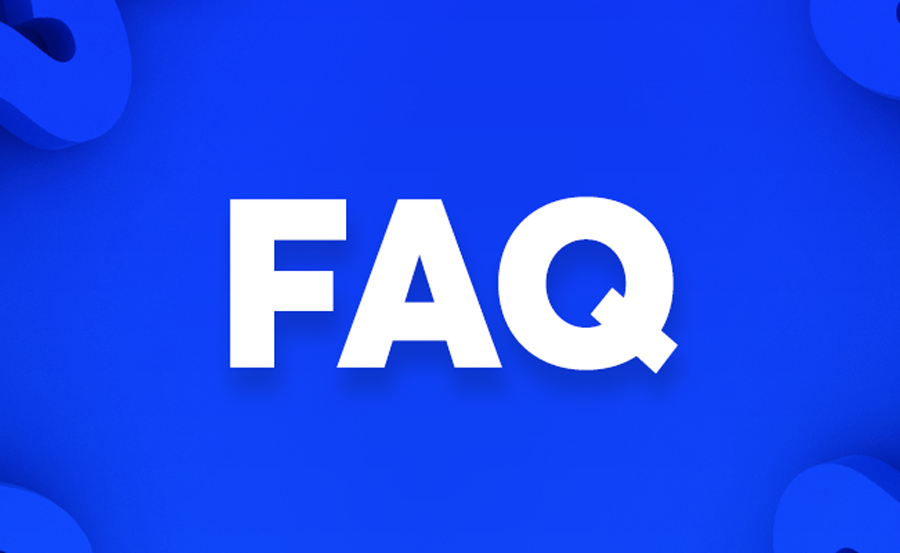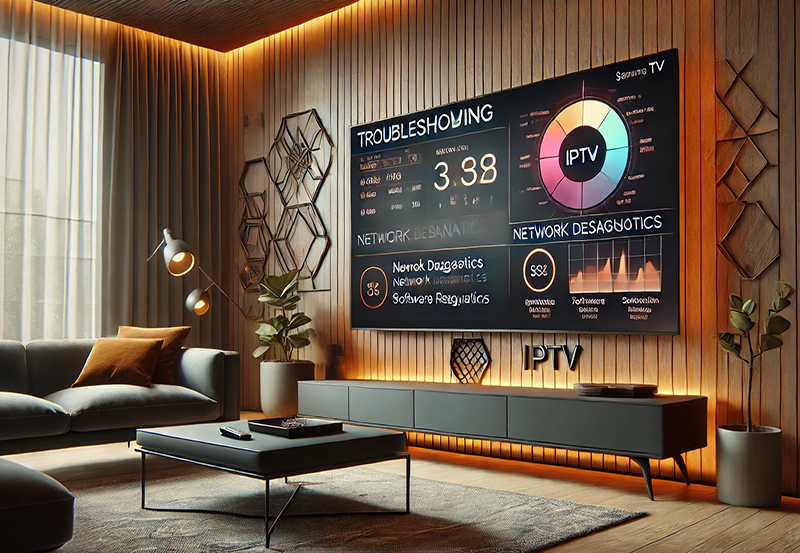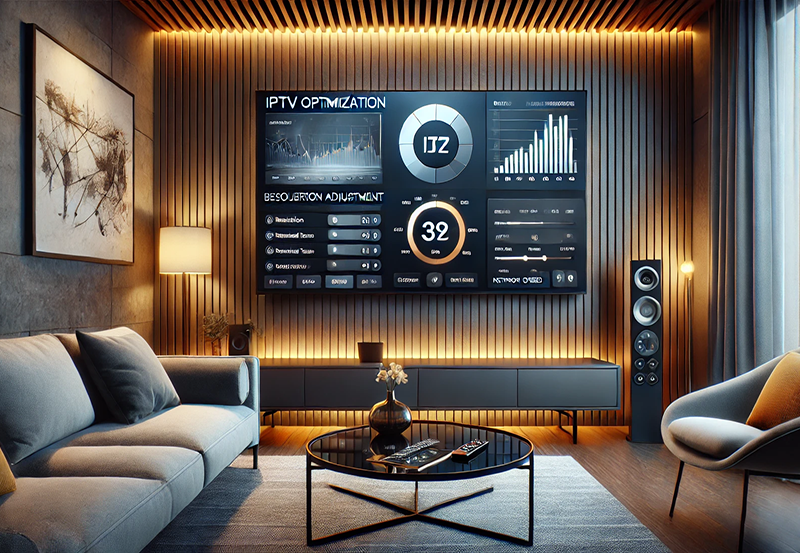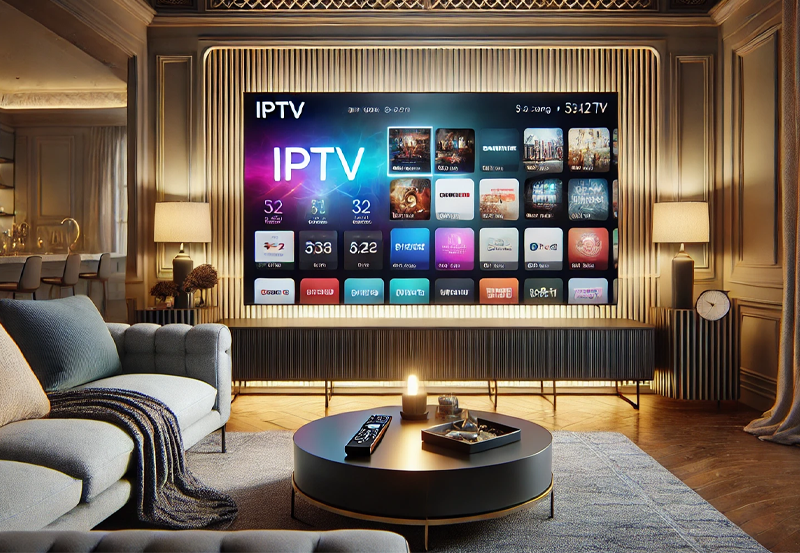IPTV (Internet Protocol Television) has revolutionized the way we consume television content. It allows you to stream live TV, movies, sports, and on-demand content over the internet. However, just like any technology, IPTV can sometimes experience loading issues that disrupt your viewing experience. These problems can be frustrating, especially if you’ve invested in a high-quality Smart TV. In this article, we will explore common IPTV loading issues and provide solutions to fix them, ensuring smooth and uninterrupted streaming.
Buy 1 Year IPTV Subscription and Enjoy Unlimited Content
What Causes IPTV Loading Issues?
Before we jump into solutions, it’s important to understand why IPTV loading issues occur. Various factors can lead to poor streaming performance, including:
- Internet Connection Speed and Stability: IPTV relies heavily on a stable and fast internet connection. Slow speeds or intermittent connectivity can lead to buffering and delayed loading times.
- Smart TV Hardware Limitations: If your Smart TV doesn’t have the processing power required to handle high-definition IPTV streams, it might struggle to load content efficiently.
- Outdated IPTV Apps or Firmware: Using outdated IPTV apps or TV firmware can cause compatibility issues that affect loading times and streaming quality.
- Network Congestion: When multiple devices are connected to the same network, it can cause congestion and result in slower streaming speeds.
- Server Issues from IPTV Providers: Sometimes, the problem lies with the IPTV service provider itself, especially if their servers are experiencing high traffic or technical issues.
Now, let’s look at how to fix these issues.
1. Check Your Internet Connection
The most common cause of IPTV loading issues is a slow or unstable internet connection. To stream IPTV content smoothly, you need a reliable internet connection with adequate speed. Here’s how to test and fix it:
- Test Your Internet Speed: Use a speed test tool like Speedtest.net to check your internet speed. For HD streaming, you need a minimum of 5 Mbps, while 4K streaming requires at least 25 Mbps.
- Improve Wi-Fi Signal: If you’re using Wi-Fi, ensure that your router is placed in an optimal location, free from interference. Consider using a Wi-Fi extender if the signal is weak in the area where your Smart TV is located.
- Use Ethernet: For the most stable connection, consider using a wired Ethernet connection to your Smart TV. This eliminates Wi-Fi interference and ensures a steady connection.
- Restart Your Router: Sometimes, simply restarting your router can resolve connectivity issues. Unplug it for 30 seconds and plug it back in.
2. Optimize Smart TV Settings
Your Smart TV may have settings that are affecting IPTV performance. Here’s what you can do to optimize its settings:
- Clear Cache and Data: Over time, IPTV apps can accumulate data that slows down performance. Go to your TV’s settings and clear the cache for the IPTV app you are using.
- Adjust Picture Settings: Lowering the resolution can help reduce the load on your TV’s processor. Switch to a lower resolution in the settings if you experience long loading times or buffering.
- Disable Background Apps: Make sure there are no other apps running in the background that might be consuming bandwidth or TV resources.
3. Update IPTV Apps and TV Firmware
Outdated software can be a major cause of IPTV loading issues. Regularly updating your apps and TV firmware can solve compatibility problems and improve performance. Here’s what you should do:
- Update IPTV Apps: Go to the app store on your Smart TV and check for updates for your IPTV app. New updates often fix bugs and improve performance.
- Update TV Firmware: Check for any available firmware updates for your Smart TV. Updating your TV’s software can resolve many performance issues, including slow IPTV streaming.
4. Limit Network Traffic
If multiple devices are connected to the same network, it can cause congestion and slow down IPTV performance. To optimize your network for IPTV streaming:
- Prioritize IPTV Traffic: Many routers offer Quality of Service (QoS) settings that allow you to prioritize IPTV traffic. This ensures that your TV gets the necessary bandwidth for smooth streaming.
- Disconnect Unnecessary Devices: Disconnect devices that aren’t being used, especially those that are streaming heavy content like videos or online gaming.
How to Enable IPTV Multi-View on Panasonic TVs
5. Troubleshoot IPTV Provider Issues
If the above steps don’t resolve your IPTV loading issues, the problem could be with your IPTV service provider. Here’s what to do:
- Check the IPTV Provider’s Server Status: Visit the provider’s website or social media channels to see if they are experiencing server issues or maintenance.
- Test Another IPTV Provider: If possible, try using a different IPTV provider to see if the issue persists. This will help you determine whether the problem lies with the IPTV service itself or your TV and network.
6. Try Using a VPN for Better Streaming
If you’re experiencing geo-restrictions or throttling from your ISP (Internet Service Provider), using a VPN can help. A VPN (Virtual Private Network) can mask your IP address and allow you to access IPTV content from different regions, bypassing any bandwidth throttling that might be affecting your streams.
- Choose a Reliable VPN: Look for a VPN with servers optimized for streaming and low latency. Some popular options include NordVPN, ExpressVPN, and CyberGhost.
- Connect to a Fast Server: Choose a server close to your region to reduce the risk of buffering.
7. Restart the IPTV App or Smart TV
Sometimes, restarting the IPTV app or Smart TV can solve the issue. Here’s how to do it:
- Restart the IPTV App: Close the IPTV app completely and relaunch it to see if it resolves the loading issue.
- Restart Your Smart TV: Turn off your Smart TV, wait for about 10-15 seconds, and then turn it back on. This can help refresh the system and resolve any minor glitches affecting IPTV performance.
FAQs

Why is my IPTV loading so slow?
The most common reasons for slow IPTV loading are slow internet speed, network congestion, outdated apps or firmware, and server issues from the IPTV provider.
How can I improve IPTV streaming performance?
To improve IPTV performance, ensure you have a stable internet connection, update your IPTV app and TV firmware, and optimize your Smart TV settings. Using a wired connection instead of Wi-Fi can also help improve streaming quality.
Can a VPN help with IPTV loading issues?
Yes, using a VPN can help bypass ISP throttling and geo-restrictions, improving IPTV streaming performance.
Final Thoughts
IPTV loading issues on Smart TVs can be frustrating, but they are often solvable with the right troubleshooting steps. By ensuring you have a stable internet connection, optimizing your Smart TV settings, updating apps and firmware, and limiting network traffic, you can significantly improve IPTV performance. Additionally, a VPN can help if you’re facing geo-restrictions or ISP throttling.
By following the steps outlined above, you’ll be able to enjoy uninterrupted IPTV streaming on your Smart TV with minimal loading times and buffering issues.
How to Install The Magic Dragon Kodi Addon on FireStick





